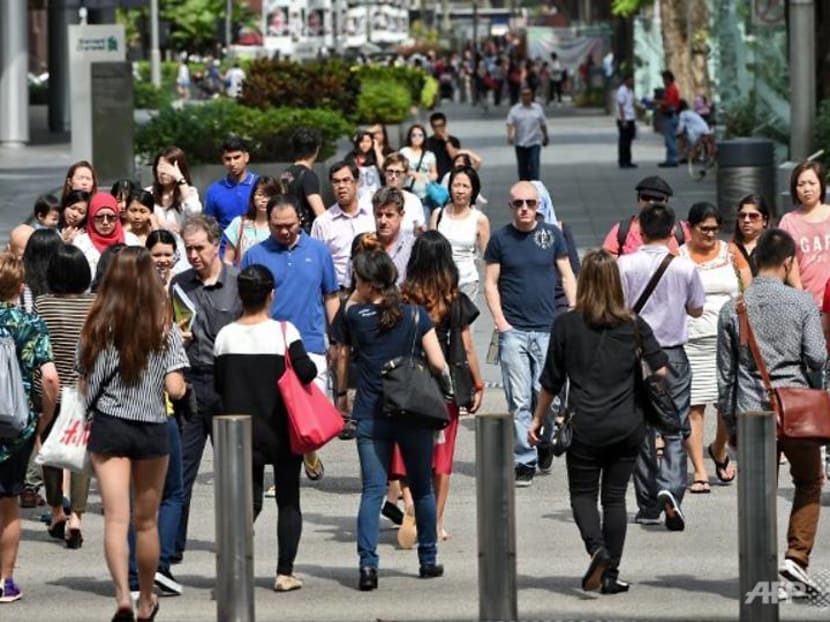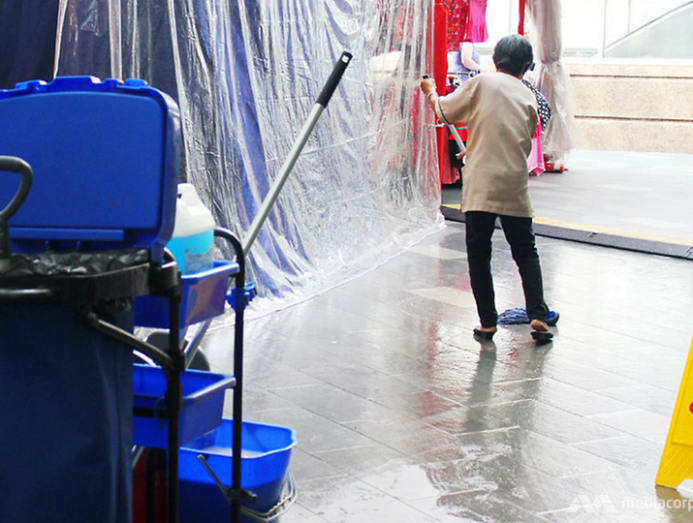Commentary: Improved meritocracy can focus on skills, training and career progression
DPM Lawrence Wong said Singapore can be a more open and compassionate meritocracy. Getting there requires us to think about skills, progressive wages and how society and Government play their part, says the Lee Kuan Yew School of Public Policy’s Terence Ho.

SINGAPORE: In recent years, the rise of the gig economy has created new ways of working in various sectors, from banking, information technology, insurance and healthcare, to transport and online shopping.
SINGAPORE: In launching Forward Singapore, a year-long national conversation, Deputy Prime Minister Lawrence Wong said that Singapore “cannot abandon” meritocracy despite its downsides, but can make it “more open and compassionate”.
It is hard to disagree with meritocracy as a principle that upholds fair opportunities for all. But it is also evident that meritocracy can, in practice, entrench privilege and inequality.
Discussions on meritocracy tend to centre on the education system and its emphasis on academic achievement. The lower-income and less academically inclined may become casualties in a system where the more affluent can gain a head-start in life through private tuition and enrichment classes.
Various initiatives aim to give all children a good start, such as KidSTART and the Learning Support Programme, and to broaden the concept of merit to reduce emphasis on grades and consider non-academic criteria for admission to schools and tertiary institutions.
Interventions in education, however, will take time to show results. They are also not a panacea as it is hard to eliminate advantages parents can pass on to their children in both academic and non-academic domains.
So to foster a more open and compassionate meritocracy, we need to look beyond the education system to the workplace and broader society, and the different roles we all play to get there.
SKILLS, TRAINING AND CAREER PROGRESSION
There must be opportunities for progression through one’s working life, or what Senior Minister Tharman Shanmugaratnam has dubbed a “continuous meritocracy”.
Demonstrable skills, as well as learning and performance on the job, should allow each worker to go as far as he or she can without being constrained by past educational attainment. Employers can do their part by not pigeonholing employees or locking them into preset career development pathways according to education level or qualification.
This makes sense when we consider that jobs have transformed dramatically and skills require continuous refreshing. According to a 2021 PwC study, about half of Singapore workers think their job would be obsolete within five years.

While there is a place for self-directed skills upgrading, taking time off for training can seem a luxury to some workers who have job and family obligations to meet.
Hence, it is important for employers to champion upgrading in skills relevant to job and business transformation, by carving out time for employee training. It makes a huge difference to motivation when workers can put to use the skills they have acquired and be rewarded for their efforts.
This is the thinking behind the company training committees (CTCs), initiated and championed by the National Trades Union Congress (NTUC), which help companies drive worker training in tandem with business transformation.
Sectoral or industry-based efforts can push the envelope further still. The Progressive Wage Model (PWM), with its sector-based wage and productivity ladders, is based on the principle of continual skills upgrading for greater productivity and pay. The idea is that no jobs should be “dead end”: There must always be opportunities for personal improvement and career advancement.
VALUING THE CONTRIBUTIONS OF ALL WORKERS
By raising the incomes of lower-wage workers, PWM also supports Mr Wong’s call for society to recognise the contributions of every worker, treat them with dignity and respect, and pay them well.
Mandatory PWM has been implemented in four sectors over the past eight years. As announced at the 2021 National Day Rally, it will be progressively extended to more sectors and occupations, while companies hiring foreigners will be required to pay local employees a Local Qualifying Salary (LQS) of S$1,400.
The expanded PWM, including the LQS requirement, will directly benefit over 8 in 10 workers in the bottom fifth of the income distribution. Forthcoming enhancements to Workfare will also raise the take-home pay of lower wage workers, including younger workers aged 30 to 34.
Wage disparities across some occupations are higher in Singapore than in the United Kingdom and other advanced economies. With the tight labour market, the pay of professionals, especially those with in-demand skills such as IT, will continue to rise. PWM plays a crucial part in ensuring that those in traditional “blue collar” work do not lag further behind. Otherwise, a two-tier economy and workforce could emerge, putting social cohesion under strain.
Raising the pay and prestige of essential service occupations such as cleaning and healthcare will also help to attract locals to such jobs and reduce Singapore’s reliance on foreign manpower. This is important for a sustainable and resilient workforce.
As not all the increase in labour cost arising from PWM can be offset by productivity gains, businesses, consumers and the state will have to collectively shoulder the difference.
This requires a whole-of-society consensus on the value of a more equitable society. The Government has recently announced that it will enhance the Progressive Wage Credit by funding a larger proportion of the increase in lower-wage worker salaries, to ease the transition for businesses.

WHAT WE’RE WILLING TO DO TO ACHIEVE THE KIND OF MERITOCRACY WE WANT
An open and compassionate meritocracy is in fact necessary for Singapore to remain open to trade, investment and talent from abroad.
Ultimately, Singapore can remain an open economy only if citizens across the income spectrum experience the benefits of globalisation and have an equitable share in the fruits of economic growth. Otherwise, there is a real risk of society turning insular, just as in other advanced economies where anti-foreign sentiment has boiled over.
Besides workforce interventions, Singapore has been strengthening social safety nets including the Community Care (ComCare) schemes. To provide greater assurance for workers at a time of economic volatility, it is worth considering how to operationalise some form of unemployment relief or insurance, which could be co-funded by employers, workers and the state.
All these will however amount to higher public spending. Part of the additional revenues needed will come from higher top marginal income and property taxes introduced in Budget 2022. Further adjustments to the fiscal system may be necessary down the road, a topic that merits discussion among citizens and societal stakeholders.
Forward Singapore comes at an opportune moment for citizens from different walks of life to express their aspirations for Singapore, including the kind of meritocracy we would like to see take root here, and what we are willing to do to achieve it.
This could include a commitment to skills upgrading on the part of workers, progressive pay and employment practices on the part of employers, potential shifts in public policy, as well as a willingness on the part of citizens to accept higher costs and tax contributions, if needed, for a more equitable society.
Terence Ho is Associate Professor in Practice at the Lee Kuan Yew School of Public Policy. He is the author of Refreshing the Singapore System: Recalibrating Socio-Economic Policy for the 21st Century (World Scientific, 2021).











